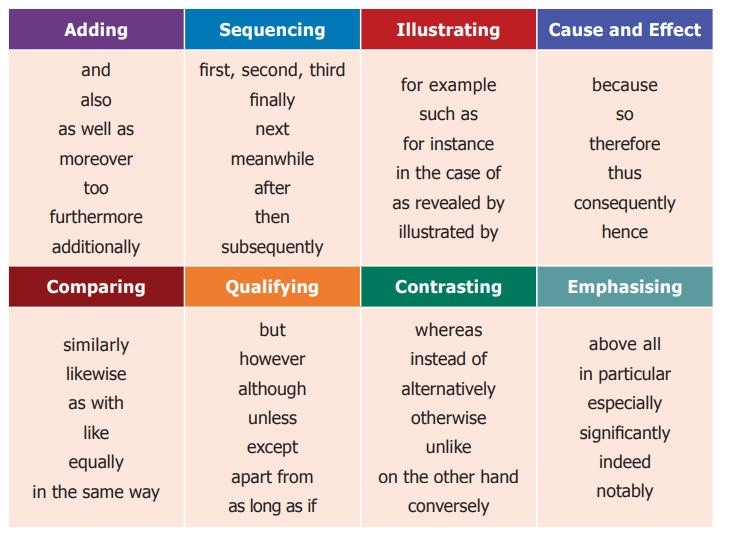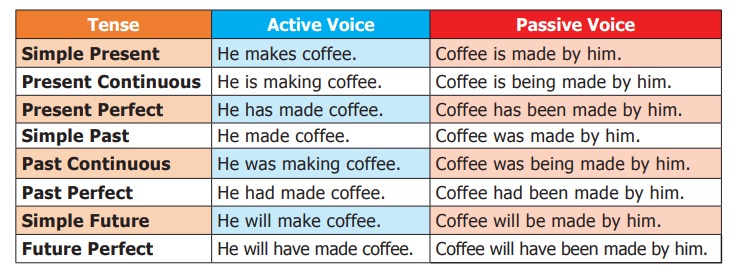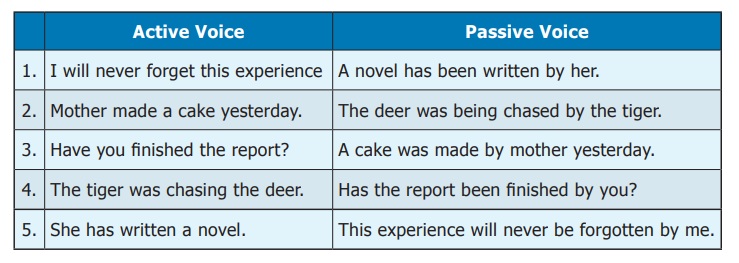Definition, Example, Sample Questions Answers - Grammar: Connectors, Active Voice and Passive Voice | 9th English : UNIT 6 : Prose : From Zero to Infinity - Biography of Srinivasa Ramanujan
Chapter: 9th English : UNIT 6 : Prose : From Zero to Infinity - Biography of Srinivasa Ramanujan
Grammar: Connectors, Active Voice and Passive Voice
Grammar
Connectors
* We could go to the library or
the park.
* He neither finished his homework nor
studied for the test.
* I did not go out because the weather was hot.
In each of the above sentences, two different
ideas are expressed in one sentence.To connect the ideas, some words like or, neither…nor,
because are used. These words and phrases are called Connectors.
A connector may be used to indicate the relationship between the
ideas expressed in a clause or a sentence.
The following connectors can be used for different purposes.
Look at the following sentences, how connectors are used.

* The man has much money. However, he isn’t happy at all.
* I like playing football. On the other hand, my brother
likes playing basketball.
* His family made a lot of effort to make their
son’s lessons better, conversely, he never made any effort.
* She spent four years studying for her law
degree. Meanwhile,
she continued to work at the bank.
* You are not allowed to use your phone here. Similarly,
you have to switch it off when you are in the library.
A. Complete the following sentences using appropriate
Connectors from the box.
moreover, although, meanwhile, therefore,
because, as long as, thus, above all, for instance, except
1. Irine felt cold although she was
wearing a winter coat.
2. This restaurant has some of the best chefs
in the town. moreover their service is excellent.
3. I’m not going to the party tonight because I didn’t get an invitation.
4. You can set the table. meanwhile,
I’ll start making dinner.
5. I can play quite a few instruments. for instance, the flute, the guitar and the piano.
6. The store was out of chocolate chips; therefore they would need to make a different type of cookies.
7. The stores are open daily except Sundays.
8. I’ll stay as long as you need me.
9. This detergent is highly concentrated and thus you will need to dilute it.
10. It was the thing he prized above all.
Active Voice and Passive Voice
Read the following sentences and analyse the difference.
The
team leader presented the report.
The
report was presented by the team leader.
* In the first sentence, the verb shows that
the subject is the doer of the action.
Therefore, the sentence is in active voice.
* In the second sentence, the verb shows that
the subject is not the doer of the action.
Therefore, the sentence is in passive voice.
We use the Passive voice when -
*the focus is on the action
rather than the doer of the action.
(e.g.)About 50 per cent of the graduates are employed in IT related sectors.
*we do not know who the doer is.
(e.g.)My bike was stolen yesterday.
*we talk of a system or a process.
(e.g.)The vegetables are washed well. Then, they are
cut into cubes.
* we write newspaper headlines and notices
at public places. (‘be’ verb is omitted as the language has to be concise)
(e.g.) 20 sportsmen felicitated by PM.
*we describe changes that have taken place.
(e.g.) Our school looks completely different.
The whole place has been painted.
Look at the below table. It shows the changes in tense while
changing sentences from active voice into passive voice.

B. Convert the following active sentences into passive
sentences by supplying an appropriate passive verb form.
1. She
will not recognize us. / We ____________ by her.
a. will not recognize
b. will not being recognized
c. will not be recognized
2. They
didn’t invite me, but I went anyway. / I ________________ but I went anyway.
a. wasn't invited
b. wasn't being invited
c. wasn't inviting
3. They
broke up the table for firewood. / The table ____________ up for firewood.
a. broke
b. had broken
c. was broken
4. She
has won the first prize. / The first prize ______________ by her.
a. has won
b. has been won
c. had been won
5. A
friend of mine is repairing the car. / The car _______________ by a friend of
mine.
a. is repairing
b. is repaired
c. is being repaired
6. Begin
the work tomorrow. / Let the work ____________ tomorrow.
a. be begun
b. begin
c.is beginning
7. They
speak English in New Zealand. / English _______________ in New Zealand.
a. is speaking
b. is spoken
c. is being spoken
8. His
attitude shocked me. / I _______________ by his attitude.
a. had shocked
b. had been shocked
c. was shocked
9. She
had already sent the parcel. / The parcel _______________ by her.
a. has already been sent
b. had already been sent
c. was already sent
10. Her silence worries me. / I _______________
her silence.
a. am worrying by
b. am worried by
c. have worried by
C. Match the following Active voice sentences with
Passive voice

Answer:
Active Voice :
1. I will never forget this experience : This experience will never be forgotten by me.
2. Mother made a cake yesterday. :
3. Have you finished the report? :
4. The tiger was chasing the deer. :
5. She has written a novel. :
Imperatives in Passive
Let + object + be + past participle. (Positive)
(e.g) Open the window. (Active)
Let the window be opened. (Passive)

Let + object + not + be + past participle.
(Negative)
(e.g) Do not pluck the flowers. (Active)
Let the flowers not be plucked. (Passive)
Look at these imperatives in passive and compare.

Active: Help me.
Passive: You are requested to help me.
Active: Don’t touch it.
Passive: You are warned not to touch it.
(Note:
We can begin the passive sentence with
you
if we want to put emphasis on the person
addressed to.)
D. Change the following into passive voice.
1. Stanley will inform you later.
2. People speak Portuguese in Brazil.
3. My grandfather built this house in 1943.
4. Do not hurt the animals.
5. You must not drop litter in the streets.
6. Carry it home.
7. They are decorating the wall.
8. He has already mended the TV set.
Related Topics